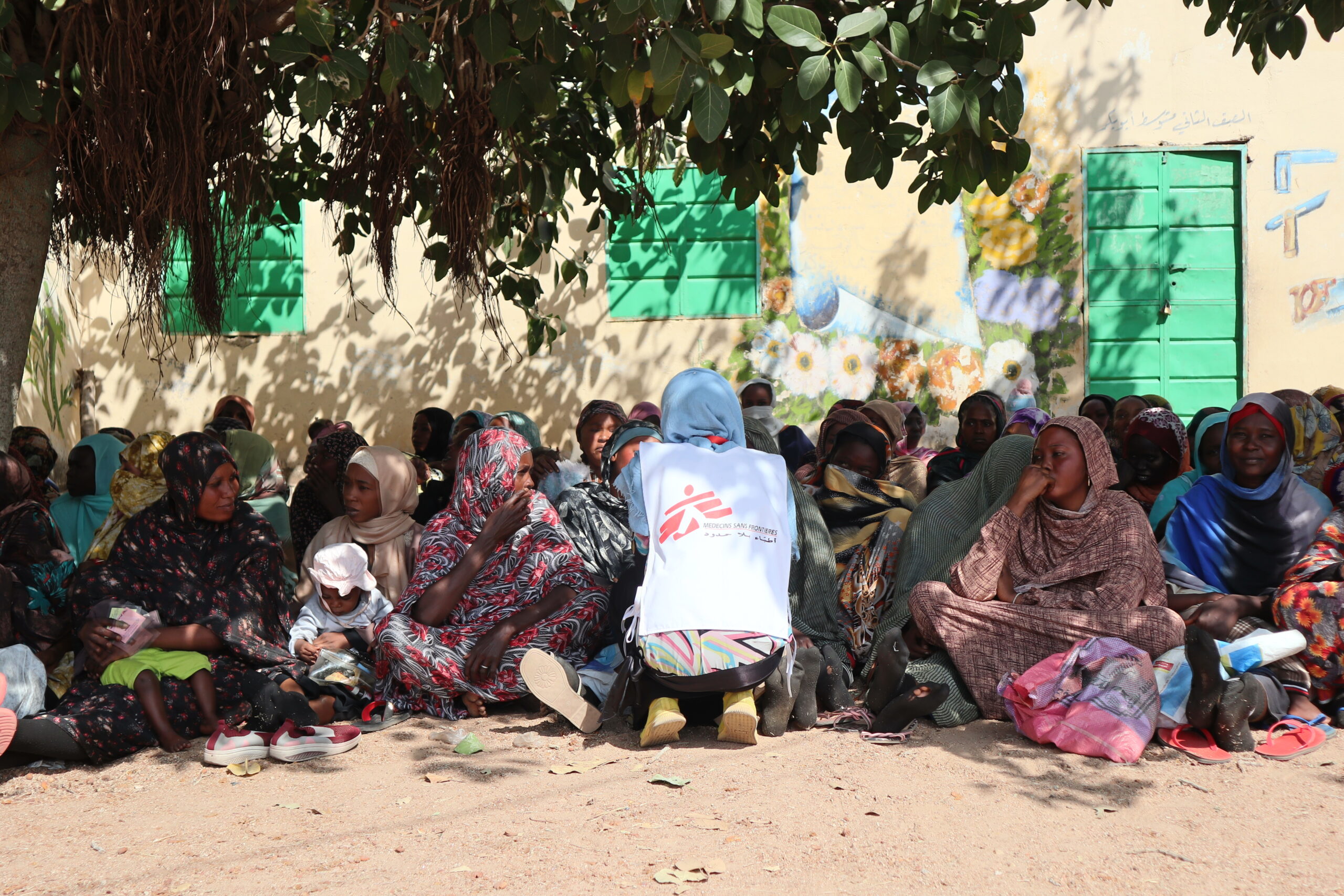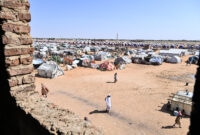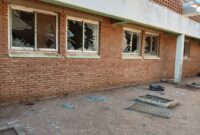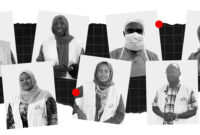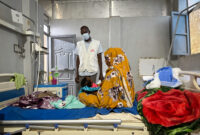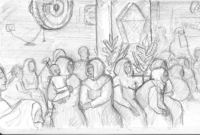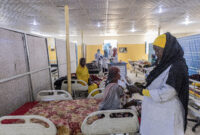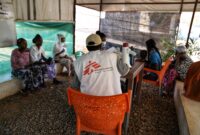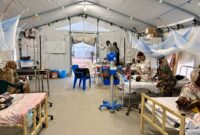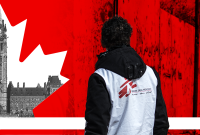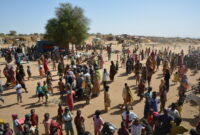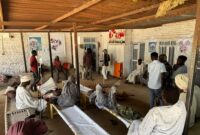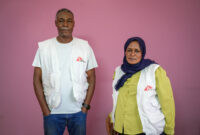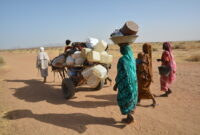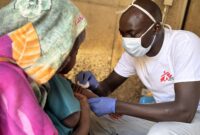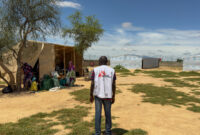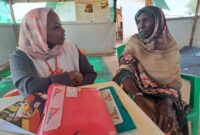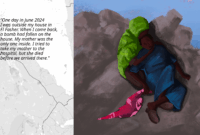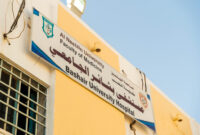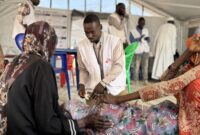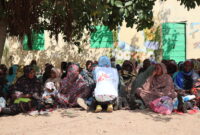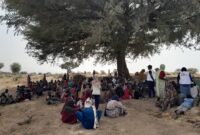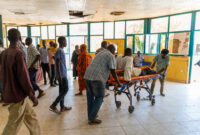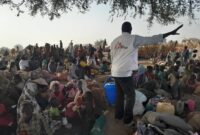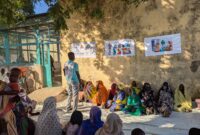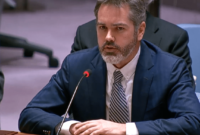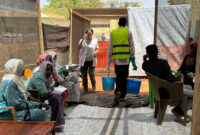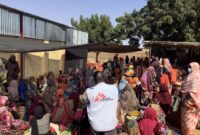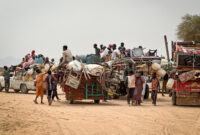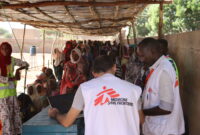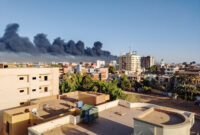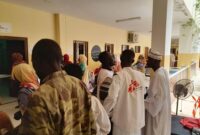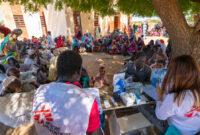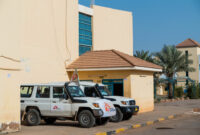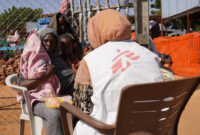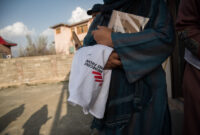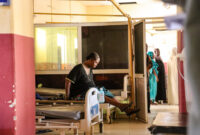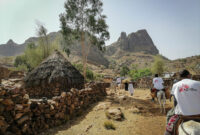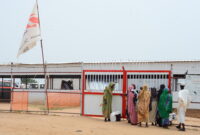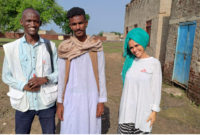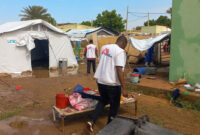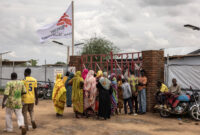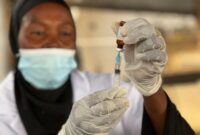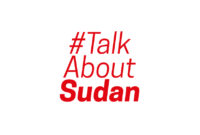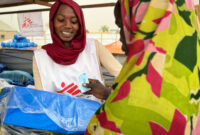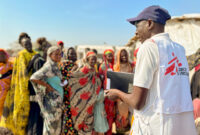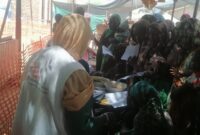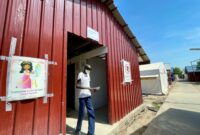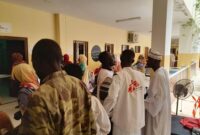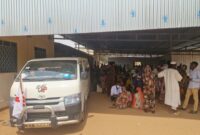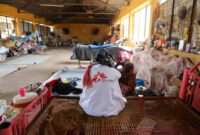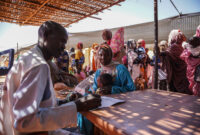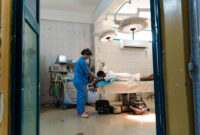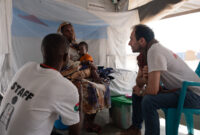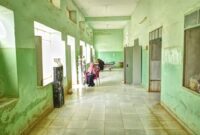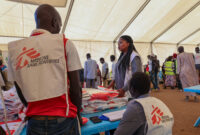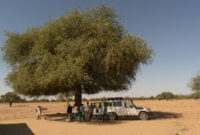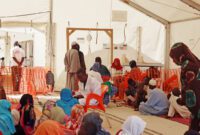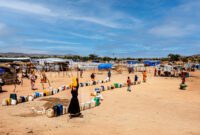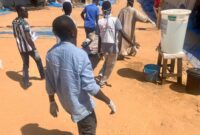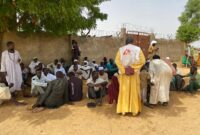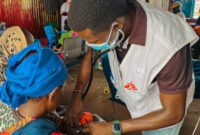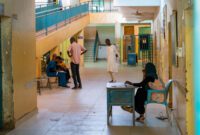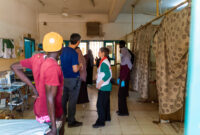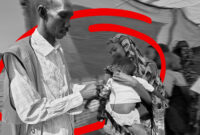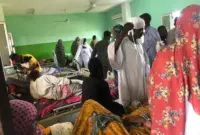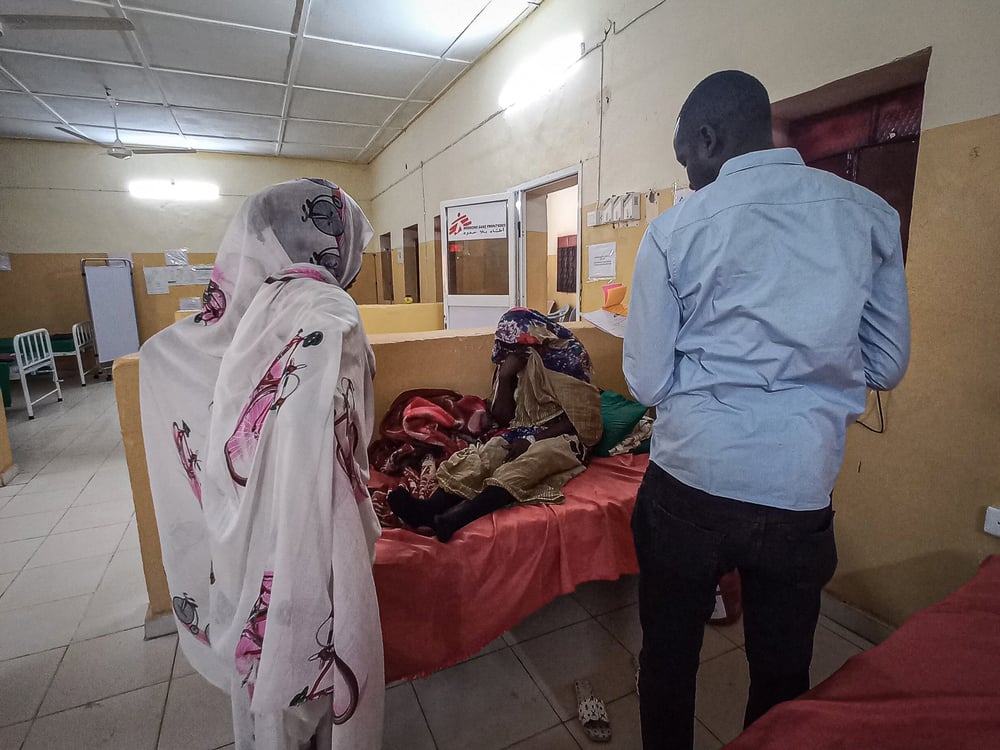Sudan: MSF report reveals stark lack of protection and assistance in South Darfur
Violence, insecurity and hunger are devastating people’s lives in South Darfur, Sudan, according to a new Doctors Without Borders/Médecins Sans Frontières (MSF) report.
The report, “Voices from South Darfur”, illustrates in vivid testimony how the impact of pervasive violence, a healthcare system in ruins and an inadequate international response have all combined to push people’s coping strategies to their limits.
“The voices and stories of people reflect the suffering, abuse and cruelty felt throughout communities in South Darfur, but also people’s endurance and compassion,” says Ozan Agbas, MSF emergency manager in Sudan. “With civilian protection collapsed and humanitarian aid still inadequate, people in South Darfur demand to be listened to, demand attention and demand action.”
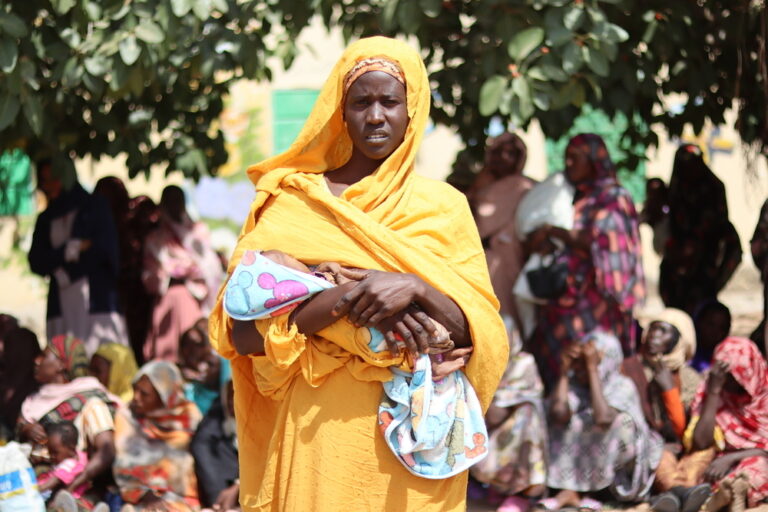
Voices from South Darfur
South Darfur experienced intense urban warfare in 2023, which destroyed hospitals and critical infrastructure. The humanitarian presence, substantial before the outbreak of civil war in April that year, disintegrated as fighting took hold. Although ground fighting in South Darfur has ceased for now, insecurity remains, as people are subject to appalling violence on roads, farmland, in markets and their own homes. Reports of arbitrary detention, theft and looting are also commonplace. Air strikes and drone strikes continue to hit South Darfur and other parts of the country.
Sexual violence is widespread. Between January 2024 and March 2025, MSF provided care to 659 survivors, with 56 per cent of cases involving assaults perpetrated by non-civilians.
A woman from South Darfur living in a displacement camp told MSF, “When women try to go outside the camp to farm… they beat us, they torture us. There is no way out. My aunt’s daughter was raped by six men, just six days ago… I feel insecure, because if I go out, I will be raped.”
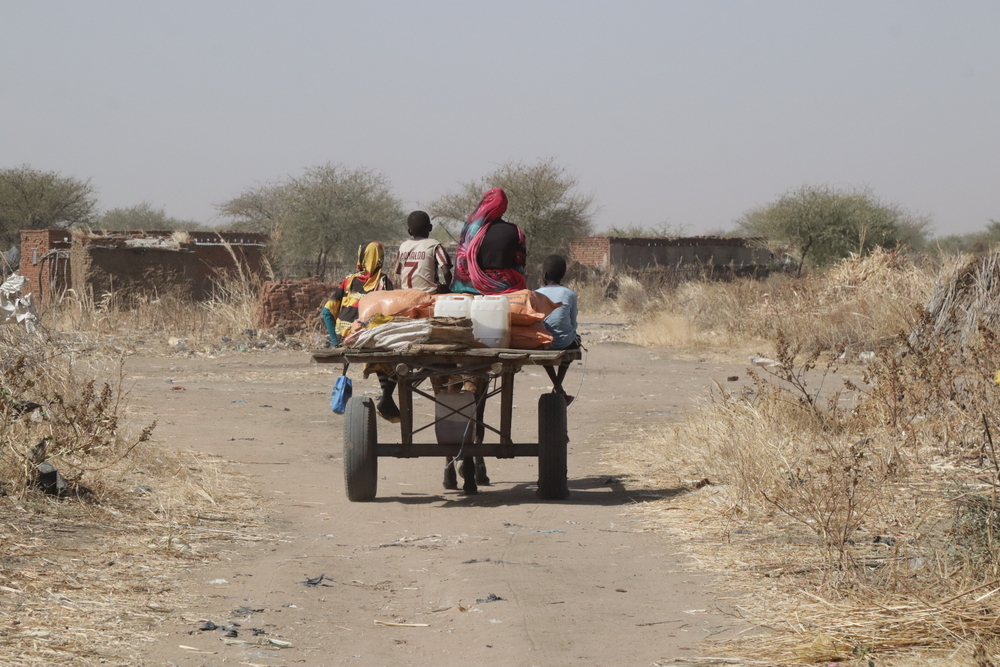
People describe the fear and anxiety of their children and their own feelings of helplessness, indignity and of being trapped.
“Our farms are completely destroyed – we have nothing. My husband was killed four months ago. We have nothing now,” says an internally displaced woman to MSF in Beleil locality. “For three days, I haven’t eaten anything. I don’t know what will happen to me on the way home. I am afraid, because those people who killed my husband, maybe they will do the same to me.”
The violence has shattered the healthcare system. Adequate care is simply not available for people due to a range of compounding issues: facilities have been destroyed, damaged or abandoned; healthcare workers have fled or are no longer receiving salaries; supplies are absent or interrupted; and people struggle to afford transport to reach what remains of the healthcare system.
“I just depend on what I can find, day to day. If I get something, we will eat. If I don’t get something, we won’t. This is my life.”
A woman in Al-Salam displacement camp
Insecurity is intertwined with hunger, as the threat of violence has cut off access to farmland and incomes. Between January 2024 and March 2025, MSF supported programs in South Darfur that treated over 10,000 acutely malnourished children under the age of five and provided nutrition treatment to thousands of malnourished pregnant and breastfeeding women and girls.
The malnutrition crisis is expected to deteriorate even further with the imminent arrival of the rainy and lean seasons.
Amid soaring costs of food, families are forced to subsist on one meal a day – sometimes not even that. “I just depend on what I can find, day to day,” says a woman in Al-Salam displacement camp to MSF. “If I get something, we will eat. If I don’t get something, we won’t. This is my life.”
Since the war started, the response from international organizations and UN agencies has been sparse, inconsistent and slow to arrive in South Darfur. “We heard international organizations help people, but they never bring anything for us,” said a woman in Nyala, in November 2024.
There have been some recent signs of improvement, with UN agencies increasingly finding ways to bring humanitarian supplies to South Darfur. Non-governmental organizations (NGO) are gradually scaling up their presence and activities. However, due to severe access constraints, UN agencies are still not in South Darfur to lead and coordinate the response, more than two years into the conflict, and NGOs are moving slowly and with caution.

Communities are working in solidarity to overcome the effects of violence. Neighbours support one another, sharing their food. Groups of young people clear away rubble and unexploded ordnance and purchase medicines for displaced people living in their neighbourhood. Teachers work for free in looted buildings. MSF has supported local initiatives to help run community kitchens, provide meals for school children and support health posts run by volunteers. Health facilities and water systems have been rehabilitated and MSF ran a program that provided food to 6,000 families in multiple locations across the state.
These programs demonstrate it is possible to support local initiatives and improve services when determination, creativity and a willingness to take risks combine.
“Local organizations in Darfur have the knowledge and expertise to provide essential services,” says Agbas. “Giving responders supplies, funding and decision-making power will make a substantial contribution to saving lives.”
The testimonies and medical data in “Voices from South Darfur” were generated through our activities between January 2024 and March 2025.
